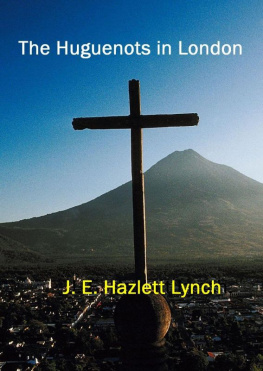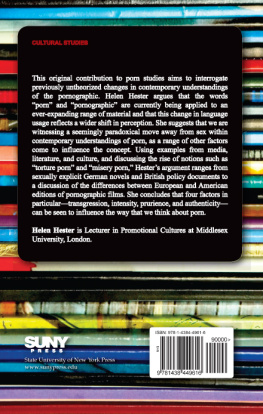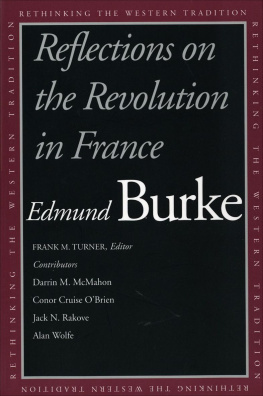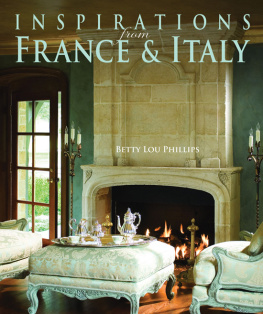NAPLES.
On the tenth day of this month we arrived early at Naples, for I think it was about two oclock in the morning; and sure the providence of God preserved us, for never was such weather seen by me since I came into the world; thunder, lightning, storm at sea, rain and wind, contending for mastery, and combining to extinguish the torches bought to light us the last stage: Vesuvius, vomiting fire, and pouring torrents of red hot lava down its sides, was the only object visible; and that we saw plainly in the afternoon thirty miles off, where I asked a Franciscan friar, If it was the famous volcano? Yes, replied he, thats our mountain, which throws up money for us, by calling foreigners to see the extraordinary effects of so surprising a phnomenon. The weather was quiet then, and we had no notion of passing such a horrible night; but an hour after dark, a storm came on, which was really dreadful to endure; or even look upon: the blue lightning, whose colour shewed the nature of the original minerals from which she drew her existence, shone round us in a broad expanse from time to time, and sudden darkness followed in an instant: no object then but the fiery river could be seen, till another flash discovered the waves tossing and breaking, at a height I never saw before.
Nothing sure was ever more sublime or awful than our entrance into Naples at the dead hour we arrived, when not a whisper was to be heard in the streets, and not a glimpse of light was left to guide us, except the small lamp hung now and then at a high window before a favourite image of the Virgin.
My poor maid had by this time nearly lost her wits with terror, and the French valet, crushed with fatigue, and covered.
The Ville de Londres inn was full, and could not accommodate our family; but calling up the people of the Crocelle, we obtained a noble apartment, the windows of which look full upon the celebrated bay which washes the wall at our door. Caprea lies opposite the drawing-room or gallery, which is magnificent; and my bed-chamber commands a complete view of the mountain, which I value more, and which called me the first night twenty times away from sleep and supper, though never so in want of both as at that moment surely.
Such were my first impressions of this wonderful metropolis, of which I had been always reading summer descriptions, and had regarded somehow as an Hesperian garden, an earthly paradise, where delicacy and softness subdued every danger, and general sweetness captivated every sense;nor have I any reason yet to say it will not still prove so, for though wet, and weary, and hungry, we wanted no fire, and found only inconvenience from that they lighted on our arrival. It was the fashion at Florence to struggle for a Terreno, but here we are all perched up one hundred and forty two steps from the level of the land or sea; large balconies, apparently well secured, give me every enjoyment of a prospect, which no repetition can render tedious: and here we have agreed to stay till Spring, which, I trust, will come out in this country as soon as the new year calls it.
Our eagerness to see sights has been repressed at Naples only by finding every thing a sight; one need not stir out to look for wonders sure, while this amazing mountain continues to exhibit such various scenes of sublimity and beauty at exactly the distance one would chuse to observe it from; a distance which almost admits examination, and certainly excludes immediate fear. When in the silent night, however, one listens to its groaning; while hollow sighs, as of gigantic sorrow, are often heard distinctly in my apartment; nothing can surpass ones sensations of amazement, except the consciousness that custom will abate their keenness: I have not, however, yet learned to lie quiet, when columns of flame, high as the mountains self, shoot from its crater into the clear atmosphere with a loud and violent noise; nor shall I ever forget the scene it presented one day to my astonished eyes, while a thick cloud, charged heavily with electric matter, passing over, met the fiery explosion by mere chance, and went off in such a manner as effectually baffles all verbal description, and lasted too short a time for a painter to seize the moment, and imitate its very strange effect. Monsieur de Vollaire, however, a native of France, long resident in this city, has obtained, by perpetual observation, a power of representing Vesuvius without that black shadow, which others have thought necessary to increase the contrast, but which greatly takes away all resemblance of its original. Upon reflection it appears to me, that the men most famous at London and Paris for performing tricks with fire have been always Italians in my time, and commonly Neapolitans; no wonder, I should think, Naples would produce prodigious connoisseurs in this way; we have almost perpetual lightning of various colours, according to the soil from whence the vapours are exhaled; sometimes of a pale straw or lemon colour, often white like artificial flame produced by camphor, but oftenest blue, bright as the rays emitted through the coloured liquors set in the window of a chemists shop in Londonand with such thunder!!For Gods sake, Sir, said I to some of them, is there no danger of the ships in the harbour here catching fire? why we should all fly up in the air directly, if once these flashes should communicate to the room where any of the vessels keep their powder.Gunpowder, Madam! replies the man, amazed; why if St. Peter and St. Paul came here with gunpowder on board, we should soon drive them out again: dont you know, added he, that every ship discharges her contents at such a place (naming it), and never comes into our port with a grain on board?
The palaces and churches have no share in ones admiration at Naples, who scorns to depend on man, however mighty, however skilful, for her ornaments; while Heaven has bestowed on her and her contorni all that can excite astonishment, all that can impress awe. We have spent three or four days upon Pozzuoli and its environs; its cavern scooped originally by natures hand, assisted by the armies of Cocceius Nervaever tremendous, ever gloomy grotto!which leads to the road that shews you Ischia, an old volcano, now an island apparently rent asunder by an earthquake, the division too plain to beg assistance from philosophy: this is commonly called the Grotto di Posilippo though; you pass through it to go to every place; not without flambeaux, if you would go safely, and avoid the necessity the poor are under, who, driving their carts through the subterranean passage, cry as they meet each other, to avoid jostling, alla montagna, or alla marina, keep to the rock side, or keep to the sea side. It is at the right hand, awhile before you enter this cavern, that climbing up among a heap of bushes, you find a hollow place, and there go down againit is the tomb of Virgil; and, for other antiquities, I recollect nothing shewed me when at Rome that gave me as complete an idea how things were really carried on in former days, as does the temple of











